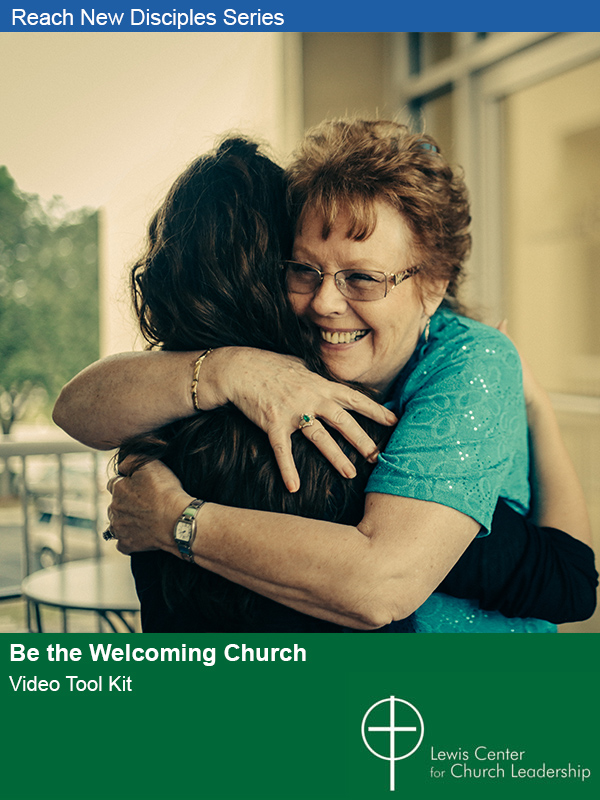How can congregations close generation gaps by building intergenerational relationships and ministries? Laura Buchanan offers several ways congregations can create opportunities for people from different generations to build relationships, serve together, and mentor one another.
One of the most precious gifts each person has is our true self, the individual God created us to be. Allowing ourselves to know and be known is a blessing to anyone in our lives, but especially to our church congregation.
“My experience is that church is one of the few places where ministry among different generations happens,” says the Rev. Kathy Pittenger, children’s initiatives coordinator for the Michigan Conference of the UMC. “Whenever we can surround ourselves, no matter what our ages, with relationships with other people from different generations, it has the opportunity to build purpose, meaning, depth, and richness that we don’t necessarily get if we stay in our own peer groups.”
Multigenerational vs. intergenerational
Most United Methodists already participate in multigenerational aspects of church—worship and events. Intergenerational ministries go deeper by nurturing relationships between people of different ages. “It means that we are more than just sitting next to each other, we are engaged with one another. We are learning from one another, teaching one another, listening to one another,” explains Pittenger.
Many of us find it challenging to step out of our comfort zone and connect with someone who likely has very different life experiences than we do. “Adults especially don’t think they know how to interact with the younger generation,” says Becca Nims, director of family ministries at St. Paul’s UMC in Cedar Rapids, Iowa. “The younger generation is just as scared, if not more, to make those connections. Then you are at a stalemate. Both need each other but they don’t know how to make that happen.”
Find a way to connect
If your church offers intergenerational ministry opportunities, participate! Be generous with your time, knowledge, and authentic self. Sit side-by-side with someone, and open your mind and heart to receive what others are offering to conversations.
If your church doesn’t currently have a structured opportunity for intergenerational ministry, volunteer to organize a simple activity that will invite relationship. This could be as simple as providing conversation starter suggestions, such as open-ended questions, at the next church event. You can also encourage people to sit with those they don’t know. For example, at the next potluck, label each table with a month of the year and ask people to sit at the table in which their birthday falls.
Intergenerational ministries don’t always have to be with students and older adults, it’s any two-generation connection. Pittenger observes that recent empty nesters would benefit from the wisdom of someone who has already gone through that season of life.
“The opportunity to share story is really important. For younger people who have limited life experience to be able to hear from an older person who has lots of life experience, even though the context might be slightly different, is helpful,” says Pittenger.
Build opportunities
If you’re ready to go a step further, Pittenger and Nims offer these ideas for closing generational gaps:
- Prayer partners: Ask young people to write their name, interests, and prayer requests on a small card. Then ask those in different generations to volunteer to pray for a specific young person and encourage them. Pittenger mentions that her son developed a relationship with a prayer partner that has lasted for more than five years, even after Pittenger’s family moved away. She has also seen prayer partners begin to attend Grandparent’s Day activities at school.
- Mentors: Whether during confirmation, Lent, or the year after high school graduation, supporting students can make a difference in their lives. Mentors can offer to meet with a student at a coffee shop after school, spend time with them at the next church event, or simply write them a short note to ask how they are doing. Talking about faith, fears, joys, and struggles can be helpful for both mentor and mentee. Nims says that she has seen mentors attend their mentee’s soccer games and bring them to church gatherings.
- Serve together: Spending time serving our neighbors is always meaningful, but sharing the experience alongside someone who has a different background can be an excellent time for learning from one another. Pittenger points out this is because, “We are working on a common goal.” Nims mentions that people in her church can easily find young volunteers because of past relationships built through other intergenerational ministries. Working together then brings even closer ties.
Lifelong impact
There is no question that spending time in intergenerational relationships will have lasting benefits. Nims mentions, “A Fuller Youth Institute study found that a young person is more likely to stay connected with some sort of faith community after high school if they have five meaningful interactions or relationships with adults outside of their family members and youth leaders.
“Knowledge is important, but young people stay because of the relationships they’ve had in the past…. I really think this is our vitality moving forward.”
This piece was initially published on November 7, 2023, on UMC.org and is shared with permission.
Related Resources
- Intergenerational Ministry and the Small Church by Brandon J. O’Brien
- 6 Suggestions to Promote Healthy Intergenerational Worship by David W. Manner
- Understanding the Cultural Realities of Children and Youth Today by Janet Craswell and Angela Pupino







